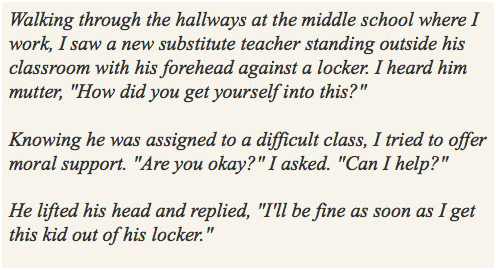How Can Changes in the Weather Affect Your Health?
Atmospheric scientists have been studying weather’s impact on the human body for years (called biometeorology), and have found that sudden temperature changes, cold snaps, heat waves and even thunderstorms can all have a direct effect on certain conditions.Here are the top five worst offenders, and what you can do about it:
Migraines
A 2009 US study of 7,000 people found that migraine risk rises 7.5% for every 9°F increase. Some of the weather-related triggers are bright sunlight, hot or cold temperatures, high humidity, dry air, windy or stormy weather, and barometric pressure changes. In all honesty, there’s not much you can do since you can’t control the weather but there are steps you can take to reduce the risk. Start by keeping a log of when you get a migraine to keep track of the temperature, humidity and wind chill for each attack. You’ll begin to identify certain weather conditions that could be causing your migraines. Check the weather daily and look for these conditions in the forecast so you can take preventive measures.
Heart Attacks
According to the British Medical Journal, a 2°F decrease at any time of year can be associated with 200 extra heart attacks over the following 28 days. Dr. Gavin Donaldson, senior lecturer in respiratory medicine at University College London, explains: “When you go into the cold, blood vessels constrict, forcing water to leave circulation. Blood thickens and is more likely to clot, increasing heart attack risk. In hot weather, you lose water through sweat. This means there’s less water in your blood, so it’s more concentrated and likely to clot.”
How you’re prepared is more important than the actual temperature. Dress in layers so you can adjust to changes. Drink plenty of fluids when it’s hot and keep active when it’s cold.
Lung Problems
If you suffer from lung diseases like emphysema or chronic bronchitis, temperature changes (and not just cold weather) poses a danger. When it’s hot, we breathe harder since it takes more energy and oxygen to keep our bodies cool. This can intensify symptoms like coughing, wheezing and shortness of breath. A recent study in the journal Allergy described how wind in thunderstorms carries pollen grains at ground level that get into the lower part of the airway, sending high numbers of asthma patients to hospitals for the treatment of asthma attacks.
Safeguard yourself by normalizing temperatures where you spend time (ie. constant temperatures in your living room and bedroom so there’s no sudden temperature change when you go to sleep). Keep active as physical exertion has shown to reduce the risk of chest infections. Check pollen forecasts.
Eczema
When temperatures rise, itching caused by eczema can get worse. Our skin is an important part of our temperature-control mechanism and doesn’t function well if you have eczema – so if you suffer from this ailment, you’ll find that you get hot quicker. The cold and wind can also dry your skin more, making symptoms worse.
Help manage your symptoms by keeping your temperature as stable as possible. Don’t overdo heating or air-conditioning and stay in well-ventilated places. It’s also important to use skin moisturizers at least twice a day!
Joint Pain
About 70% of people with joint problems report that cold or damp weather give them aches and pains. One theory is that lower pressure allows an inflamed joint to swell more, stimulating nerve fibers. Another theory is since people tend to be less active during bad weather and this lack of activity can cause joints to stiffen. Studies have also shown that during the winter, when the weather is cold and damp, a lot more of the population is low on vitamin D, which can also cause joint pain.
Protect your joints by staying active each day. Regular moderate exercise stimulates your muscles, bones and the cartilage around the joints. This will keep you mobile and healthy. Also be sure that you’re getting enough vitamin D.
Source: weatherbug.com
Back-to-School Jokes





Source: Reader's Digest

